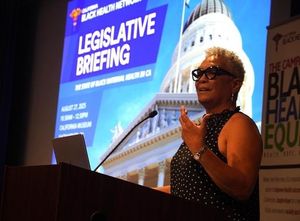South Korea is at the crossroads of a significant shift related to nuclear energy development, as global tensions intertwine with the push for sustainable energy solutions. On October 30, 2024, South Korean President Yoon Suk-yeol broke ground for two new nuclear reactors located in Uljin County, North Gyeongsang Province. This monumental step symbolizes not only the nation's commitment to bolstering its energy supply but also reflects the geopolitical tensions affecting the Korean Peninsula.
During his recent summit with Polish President Andrzej Duda on October 24, 2024, Yoon addressed pressing questions surrounding potential military involvement concerning Ukraine. A Polish journalist queried whether South Korea intended to send advanced weaponry, to which Yoon responded cautiously, emphasizing the current humanitarian support provided to Ukraine. Yet, he hinted at flexibility depending on North Korea's military actions, stating, "If North Korea dispatches special forces to the Ukraine war as part of Russia-North Korea cooperation, we will support Ukraine in stages." This posture signals not just South Korea's readiness to engage militarily, but also intertwines its military policy with its energy development strategy.
One of the reasons for South Korea's pivot toward nuclear energy lies with the continued pressures posed by North Korea's military maneuvers and the dire need for stable energy resources. With President Yoon emphasizing the importance of energy independence, particularly as regional tensions grow, the development of nuclear facilities appears to align with national interests. After all, nuclear energy can provide the consistent and reliable power necessary for burgeoning industrial sectors, including high-tech industries, medical infrastructure, and manufacturing.
On the regional front, Malaysia also stands to benefit from nuclear energy, as highlighted by recent discussions on its energy strategy. Malaysia's desire to establish itself as an industrial and technological hub has made nuclear energy appealing due to its high energy density. According to data, just one uranium pellet can produce energy equivalent to one ton of coal or 17,000 cubic feet of natural gas. Such efficiency would significantly reduce dependence on fuel imports and alleviate logistical challenges associated with energy generation.
Among the most compelling arguments for nuclear energy is its minimal environmental footprint. Countries like France rely heavily on nuclear power, generating over 70% of their electricity from this energy source. Malaysia aims to adapt to this global trend, recognizing nuclear energy as key to achieving carbon neutrality by significantly lowering greenhouse gas emissions compared to traditional fossil fuels.
Despite the advantages, nuclear energy continues to evoke skepticism primarily due to safety concerns. For example, President Yoon's administration must navigate public misconceptions about the health risks connected with radiation exposure from nuclear plants. Interestingly, living near well-regulated nuclear facilities often results in lower radiation exposure than what people encounter from natural background sources, medical procedures, or even frequent air travel.
Similar sentiments echoed during public discussions around Malaysia’s nuclear agenda, where fears surrounding radiation and waste disposal have arisen. Both nations face the challenge of effectively communicating factual information about safety standards and waste management practices. For Malaysia, partnering with international organizations like the International Atomic Energy Agency (IAEA) and promoting educational initiatives may bridge the gap between public knowledge and the perceived risks linked to nuclear energy.
Managed properly, nuclear energy could usher Malaysia and South Korea both toward energy independence. Markets for uranium—the fuel for nuclear reactors—are relatively stable compared to the volatile oil and gas markets. By investing heavily in nuclear infrastructure, both countries can significantly reduce their reliance on external supply chains, enhancing national security and stability.
Investments in nuclear energy are also anticipated to stimulate local economies. For Malaysia, the adoption of this technology could attract foreign investment geared toward energy-intensive industries. With nuclear power, the country could maintain steady electricity prices, encouraging manufacturers and tech companies to establish operations, which, invariably, fuels job creation and economic growth.
Striking the balance between energy independence and sustainability has led Malaysia to seek collaborations with its ASEAN neighbors like Thailand, Vietnam, and the Philippines. These engagements open doors for collective nuclear research and development initiatives, allowing these countries to benefit from shared resources and best practices, particularly in areas related to safety and environmental protections.
Back on the Korean Peninsula, Yoon’s focus on nuclear energy might also play a strategic role within the broader military scope. With growing concerns about North Korea’s military engagement alongside Russia, the South Korean government’s position is precariously hinged between energy needs and military readiness. Weighing options concerning troop deployment to Ukraine could potentially create unforeseen consequences for South Korea’s national security.
The contemplation of sending weapons to Ukraine raises fears of renewed military conflict between North and South on foreign soil. This possibility reinforces the notion of nuclear energy not just as a solution for energy needs but as part of the state’s larger defense strategy.
With geopolitical factors looming large, South Korea's shift toward nuclear power is defined not only by local electricity needs but also as preparation against regional instability. Both Korea and Malaysia aim to lead the way as role models for responsible nuclear energy use within their respective frameworks. The international community, increasingly attuned to environmental concerns, seems cautiously optimistic about nuclear energy as both countries grapple with balancing energy sustainability and diplomatic realities amid rising global tensions.
Transitioning to nuclear energy can set the stage for economic revitalization, environmental responsibility, and energy stability, but it requires strategic communication and public engagement to quell fears and build trust. The path forward will need careful navigation, considering all stakeholders involved, to make nuclear energy not just a reality but also accepted as secure and beneficial.



